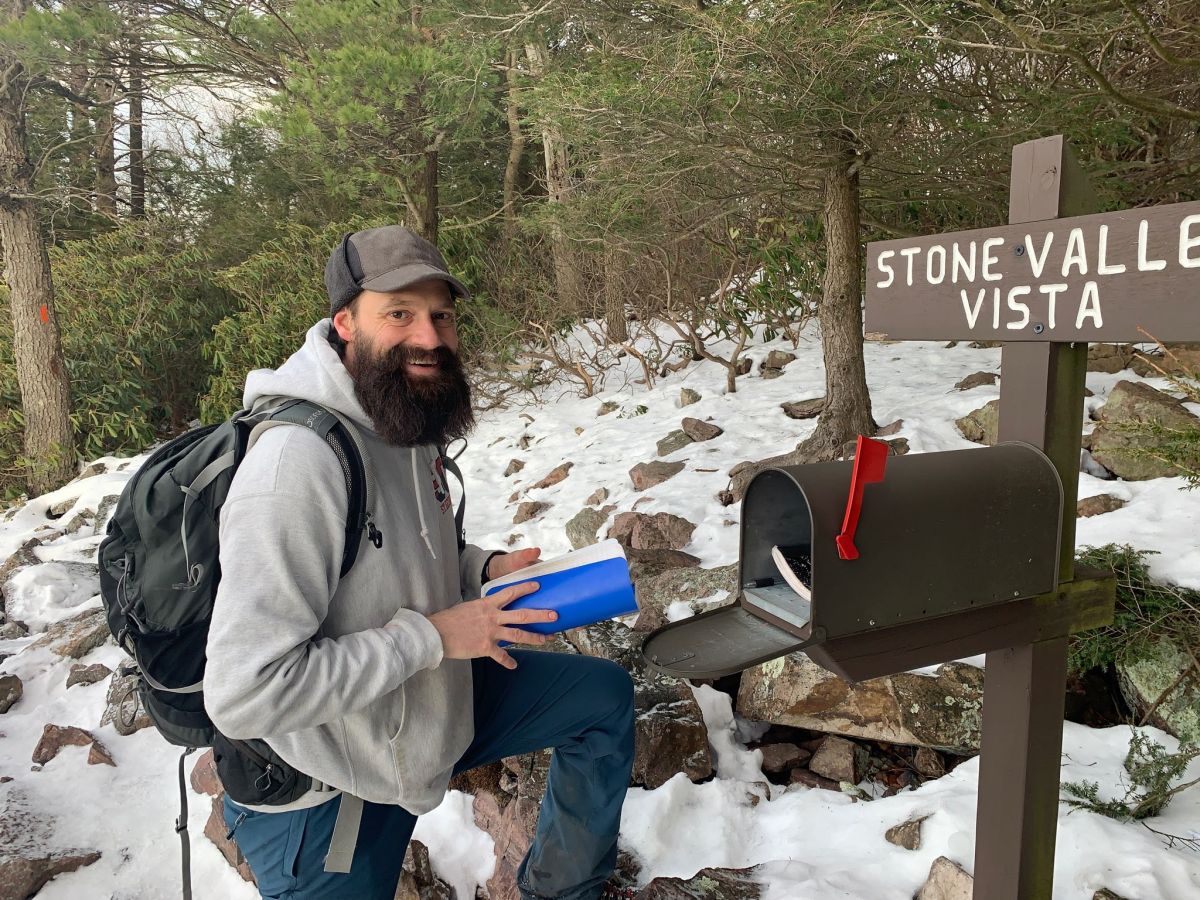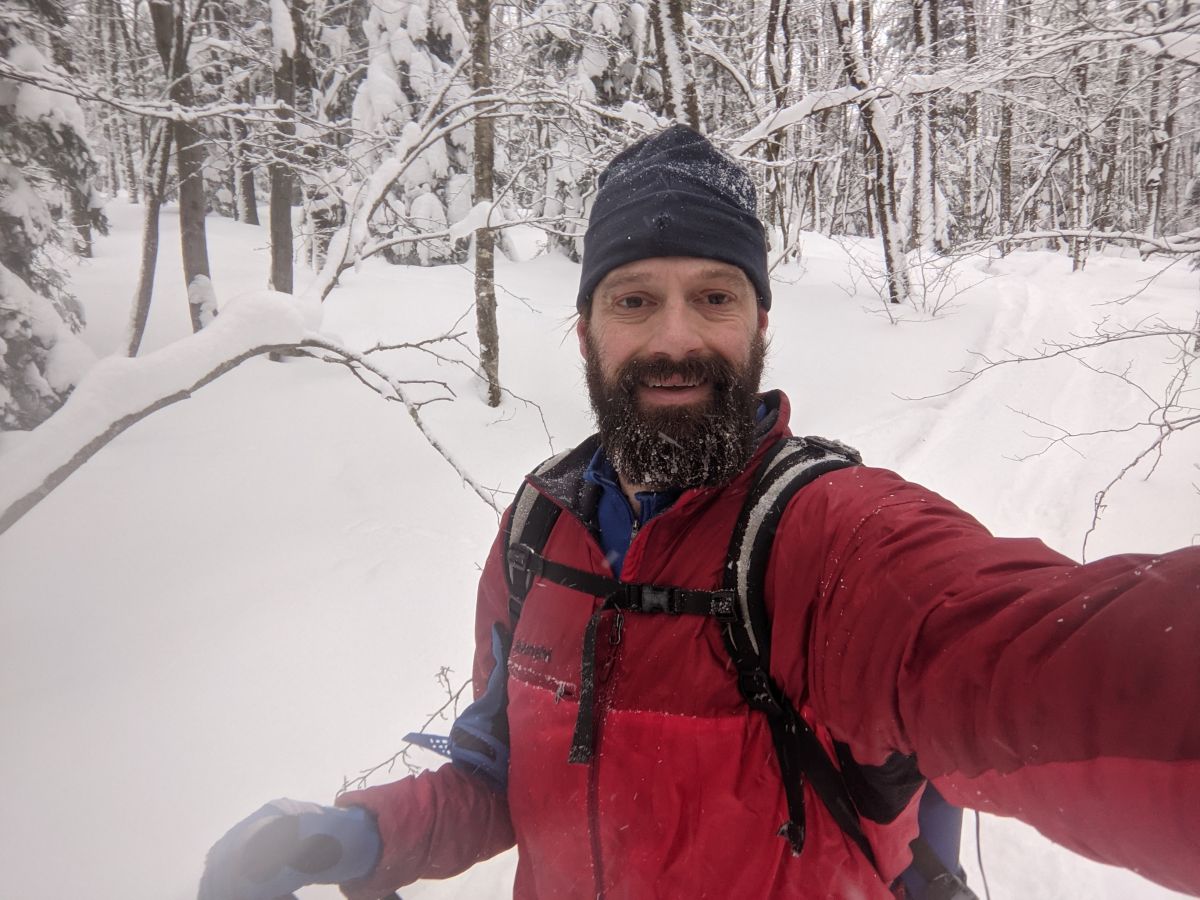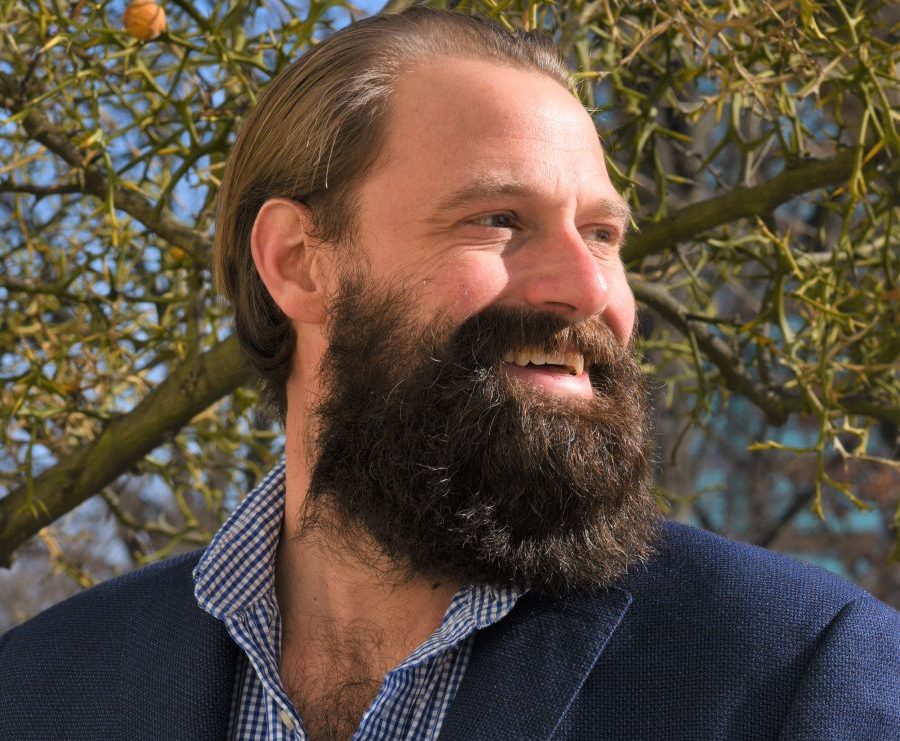By Cara Aungst

Nathan Reigner is Pennsylvania’s first director of outdoor recreation. Photo: Provided.
In November, the Department of Conservation and Natural Resources announced that outdoor recreation contributed $13.64 billion to Pennsylvania’s economy, accounting for 152,000 jobs, and 1.6% of the Commonwealth’s gross domestic product.
It reported that Pennsylvania has the sixth-largest outdoor recreation economy in the nation — one that’s supported by a combination of exceptional recreational assets; generally diversified economy; and strong retail, manufacturing and tourism sectors.
Outdoor recreation is for everyone, and you don’t need expensive gear to do it. … Just get outside — the world will open up, and your life will be better than you could have imagined.
“Outdoor recreation continues to be a thriving and significant industry within the Commonwealth and this data helps us better understand what we are doing well, while also providing guidance on where we can grow this industry for its own sake and to improve the lives of Pennsylvanians,” Pennsylvania Director of Outdoor Recreation Nathan Reigner said. “Unlike economic development through other industries, development through outdoor recreation also stimulates physical health, mental well-being, social cohesion and environmental sustainability.”
We reached out to Reigner, who was an assistant research professor in the College of Human Development at Penn State before becoming the first-ever director of outdoor recreation for the Commonwealth of Pennsylvania. We wanted to know how Happy Valley fits into this news, and where the region has opportunities to grow. As it turns out, we got a lot more than that, including a personal mission statement about the transformative power of outdoor recreation, a look into what’s driving those booming numbers and the “world’s best biking day.”
We read a recent article where you had a great quote about outdoor recreation as a way to increase livability. You said, “Quality of life is going to be the driver of development and vitality in small and medium-sized rural and industrial Pennsylvania towns, and quality of life is a product of outdoor recreation, historic preservation of our downtowns and the availability of cultural services, which are breweries, interesting restaurants, art and music festivals.” How does this directly impact the Happy Valley area?
Reigner: Happy Valley is already doing this. It’s already out in front. The Happy Valley Adventure Bureau has doubled down on outdoor recreation and particularly adventure recreation. Clearwater Conservancy’s partnership with Centred Outdoors is a good example of outdoor recreation that drives public health and community health goals.
Centre County is competing for specialized employees, and access to high-quality outdoor recreation is a great way to attract talent. There’s mountain biking, paddling, climbing and fishing, and so much more. When I think of regions that are leaders and models in the state, Happy Valley is at the top of the list.
How is outdoor recreation a driver in Happy Valley, and how can we do better?
Reigner: There really are only a few gaps in the outdoor recreation business ecosystem that I can see. One of them is bike rentals. Lots of people come into Happy Valley without bikes, but cycling is one of the great ways to transport around the area. A rental business can be hard to operate — there’s capital expense and staff time, and it’s seasonal — but that’s one way to fill a gap on the business side of things.
Another opportunity could be to develop pipelines to get visitors to explore trails as part of their visit, for example on Sunday after a home game. It could connect travelers with outdoor assets like the Arboretum, [or] the valley-to-mountain project at Musser Gap. There are so many things to explore in the area.

Dr. Reigner was an assistant research professor in the College of Human Development at Penn State before becoming the first-ever director of outdoor recreation. Photo: Provided.
In December, the Department of Conservation and Natural Resources reported that the $13.6 billion that outdoor recreation added to the Commonwealth’s GDP is up 22% from 2020 and the increase of 2,000 full-time equivalent jobs is up 4% from 2020. What’s the reason for this increase?
Reigner: The dramatic increase is largely the result of economic emergence from the pandemic. That’s the primary driver there. I think it’s important to remember even before the pandemic — 10 years before — we were collectively concerned that we were loving our parks to death. Visitation was rising year after year. Forces like Instagram, low-cost air travel, experience-hungry generations and the diversification of outdoor equipment were all driving an increase.
Emerging from Covid-19 was more of a burst on top of a long-term trend of growth. I think it’s going to increase steadily into the future, but these dramatic swings were temporary effects that stemmed from extraordinary circumstances. I think that we’ll be seeing recovery to the long-term growth trend that we have seen in the past and expect again in the future.
I believe that when we engage and purposefully try to have these experiences in the natural environment, we are shaping our understanding of the world, our relationship to nature and others with the power and meaning of those experiences.
What’s your WHY? What led you to take on this pioneering role, and what’s your vision for what’s next for Pennsylvania, for outdoor recreation and for yourself?
Reigner: I have a mission statement that speaks to that: I believe that recreation experiences are powerful and meaningful. I’ve felt it in my own life. I believe that when we engage and purposefully try to have these experiences in the natural environment, we are shaping our understanding of the world, our relationship to nature and others with the power and meaning of those experiences. The more of us who have those experiences, the better we are as individuals and as a society.
The more pressure that we place on special places to have these experiences, the more difficult it is to deliver [the] health, economic, social and cultural benefits of them. That’s because there are real administrative and environmental constraints. But with innovative, integrated management, we can provide more experiences that are powerful and meaningful. We can help people be better and we can help society be better. So my mission is to flex constraints outward, get more people having more experiences and better our lives.

Reigner says that outdoor recreation is an industry with benefits: “Unlike economic development through other industries, development through outdoor recreation also stimulates physical health, mental well-being, social cohesion and environmental sustainability.” Photo: Provided.
You have a deep history with Happy Valley. What are some of the outdoor recreation things you like best about the area?
Reigner: Cycling is my home sport. My favorite thing in the world to do is to drive to Millheim, and park at the fire company carnival grounds. I’ll bike through Bald Eagle State Forest, come back through Poe Paddy and Coburn, and then go back to Elk Creek Cafe + Aleworks when they have outdoor live music. It’s one of the best days I’ll ever have.
When I think of regions that are leaders and models in the state, Happy Valley is at the top of the list.
Cross-country skiing is another favorite. I like to meet friends at Black Moshannon on a snow day. After work, we’ll go out for a loop on the Allegheny Front Trail. It’s dark, the snow is coming down, and our breath crystalizes in the air. I’m telling you, it’s amazing.
Anything else you’d like to add?
Reigner: Outdoor recreation is for everyone, and you don’t need expensive gear to do it. That’s the big takeaway from this BEA data — participation spiked even as economic activity dropped. You don’t need the fancy stuff! Yes, it keeps you safe and comfortable, but it’s not necessary. If you have a stick and string and a license, you can fish. If you have sneakers, you can hike!
Everybody can participate in outdoor recreation. Time spent photographing birds can be just as mind-expanding as the most dramatic extreme sports. Just get outside — the world will open up, and your life will be better than you could have imagined.

